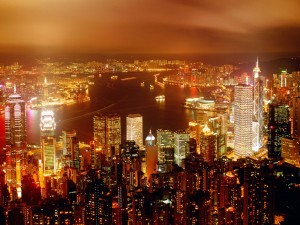Energy policy needed
THE NEWS – is all pointing to the need for a radical overhaul of energy policy – (Now, please).
1. The oil is still spilling – getting on to month 3.
There is an interactive NOAA map at http://gomex.erma.noaa.gov/erma.html
BP, apparently with the assistance of government at all levels, is trying to minimize the amount of information available about the spill. http://www.salon.com/news/opinion/glenn_greenwald/2010/07/05/bp
The big question for me is how much damage there will be from the oil/dispersant mix floating along below the surface. Out of sight (of the press and public), out of mind.
The head of the International Energy Agency, Nobuo Tanaka, stated that higher oil prices would be a likely result of the Gulf oil spill, and all the downstream effects of that spill.
What is pointedly NOT reported (by the lead US media anyway) are the following statements by Tanaka – who can hardly be counted as a foe of the coal, oil and gas industries:
“..the industrialized nations need to separate themselves from oil as a fuel, we need more electric vehicles and the required infrastructure. Photovoltaics need to become more efficient…Foremost, we need a price for carbon dioxide to speed the change. Countries need to become serious about their agreements … […to carbon emission reductions]. Also, countries must stop subsidies for oil and coal. If subsidies were abolished by 2020, we could save 2.4 gigatonnes of CO2. Half of all Saudi oil would no longer be needed.”
[My translation from this German article]
Why are these statements only reported as lead articles in countries, like France and Germany, where a comprehensive energy policy is already well established and a fact of everyday life?
2. In the NE US we have a heat wave, with high humidity – just the sort of weather to burn up lots of energy to heat up the environment in an effort to keep cool (for an explanation of this paradox see “heat pumps”)
3. Hong Kong. In a massively dense place (dense with humans and buildings) like Hong Kong overuse of air conditioning is making a real difference. From Agence France-Presse:
“Scientists predict that Hong Kong will have almost no winter by the end of the century as the electricity guzzlers help heat up the city.
Local temperatures are rising at a speed of 0.6 degrees Celsius each decade, more than three times the global average,” said Lee Boon-ying, director of the Hong Kong Observatory.”
I’ve always marveled at the thinking in Singapore and Hong Kong where you need to bring a woolen sweater to work, drink lots of hot tea to keep warm and the hotel provides feather doonas (coverlet, bedspread, whatever…) to sleep under, while outside the city sweats and melts in equatorial heat and humidity. Not sure if this is true but the saying goes that the average indoor temperature in Singapore is colder than in Toronto.
4. The story of energy waste, energy use and global warming goes on – see this Salon collection for a list of items. The telling story in this string is the retraction by the Sunday Times (The Sunday Times of London is owned by News Corporation, headed by Rupert Murdoch, and is a stable mate of Fox News). This Newsweek quote puts it pretty bluntly:
“In perhaps the biggest backpedaling, The Sunday Times of London, which led the media pack in charging that IPCC reports were full of egregious (and probably intentional) errors, retracted its central claim—namely, that the IPCC statement that up to 40 percent of the Amazonian rainforest could be vulnerable to climate change was “unsubstantiated.” The Times also admitted that it had totally twisted the remarks of one forest expert to make it sound as if he agreed that the IPCC had screwed up, when he said no such thing.“
Of course issuing a retraction some months after (deliberately?) publishing a false story does little to undo the damage.
Summary:
- Climate change is real
- Man made burning of fossil fuels will increase global warming
- Fossil fuels will become more expensive as reserves run out, environmental safeguards are upgraded and subsidies phased out
- We need a comprehensive energy policy
In the meantime…you can take individual action to reduce energy consumption, become more energy efficient, and choose energy that is both economic (to you) and does no further harm.
Posted: July 10th, 2010 under Uncategorized.



Leave a Reply
You must be logged in to post a comment.